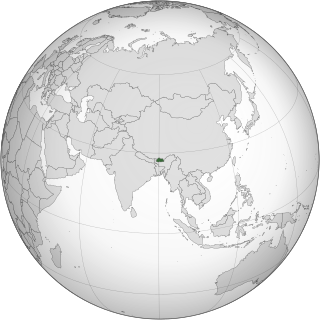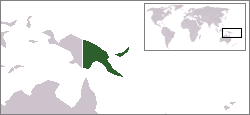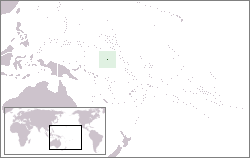This article needs additional citations for verification .(July 2010) |
| |||
|---|---|---|---|
| +... |
This is a list of notable events in the history of LGBT rights that took place in the year 1976.
This article needs additional citations for verification .(July 2010) |
| |||
|---|---|---|---|
| +... |
This is a list of notable events in the history of LGBT rights that took place in the year 1976.

Lesbian, gay, bisexual, transgender and queer (LGBTQ) movements are social movements that advocate for LGBTQ people in society. Although there is not a primary or an overarching central organization that represents all LGBTQ people and their interests, numerous LGBT rights organizations are active worldwide. The first organization to promote LGBT rights was the Scientific-Humanitarian Committee, founded in 1897 in Berlin.
This is a list of notable events in the history of LGBT rights that took place in the year 1982.
This is a list of notable events in the history of LGBT rights that took place in the year 1999.
This is a list of notable events in the history of LGBTQ rights that took place in the year 1971.
This is a list of notable events in the history of LGBT rights that took place in the year 1972.
This is a list of notable events in the history of LGBT rights that took place in the year 1975.
This is a list of notable events in the history of LGBT rights that took place in the year 1984.

Lesbian, gay, bisexual, and transgender (LGBT) people in the Democratic Republic of the Congo (DRC) face discrimination and legal challenges not experienced by non-LGBTQ residents. Same-sex sexual activity is legal for both males and females in the Democratic Republic of the Congo, although LGBT individuals may still be targeted for prosecution under public indecency provisions on occasion.
Gay-friendly or LGBT-friendly places, policies, people, or institutions are those that are open and welcoming to gay or LGBTQ people. They typically aim to create an environment that is supportive, respectful, and non-judgmental towards the LGBT community. The term "gay-friendly" originated in the late 20th century in North America, as a byproduct of a gradual implementation of gay rights, greater acceptance of LGBT people in society, and the recognition of LGBT people as a distinct consumer group for businesses.

Lesbian, gay, bisexual and transgender (LGBT) people in the Bahamas have limited legal protections. While same-sex sexual activity is legal in the Bahamas, there are no laws that address discrimination or harassment on the account of sexual orientation or gender identity, nor does it recognize same sex unions in any form, whether it be marriage or partnerships. Households headed by same-sex couples are also not eligible for any of the same rights given to opposite-sex married couples.
This is a list of notable events in the history of LGBT rights that took place worldwide in the 1950s.

Lesbian, gay, bisexual and transgender (LGBT) people in Bhutan face legal challenges that are not faced by non-LGBTQ people. Bhutan does not provide any anti-discrimination laws for LGBT people, and same-sex unions are not recognised. However, same-sex sexual activity was decriminalised in Bhutan on 17 February 2021.

Lesbian, gay, bisexual, and transgender (LGBT) people in Papua New Guinea face legal challenges not experienced by non-LGBTQ residents. Male same-sex sexual activity is illegal, punishable by up to 14 years' imprisonment. The law is rarely enforced, but arrests still do happen, having occurred in 2015 and 2022. There are no legal restrictions against lesbian sex in the country.
This is a list of notable events in the history of LGBT rights that took place in the 1970s.

This is a list of important events relating to the LGBT community from 1801 to 1900. The earliest published studies of lesbian activity were written in the early 19th century.

Lesbian, gay, bisexual, and transgender (LGBT) people in Mongolia face legal and social challenges not experienced by non-LGBT people, though there have been substantial improvements since the 1990s. Homosexuality was criminalised in Mongolia in 1961 through its Criminal Code. Following the Mongolian Revolution of 1990 and the peaceful transition to a democracy, homosexuality was legalised and awareness about LGBT people has become more prevalent. Hate crimes on the basis of sexual orientation and gender identity result in additional legal penalties. Hate speech based on these two categories has been outlawed in the country since 1 July 2017. Households headed by same-sex couples are, however, not eligible for the same legal protections available to opposite-sex couples.

Lesbian, gay, bisexual, and transgender (LGBT) people living in Nauru may face legal and social challenges not experienced by non-LGBT residents. Same-sex sexual activity has been legal since May 2016, but there are no legal recognition of same-sex unions, or protections against discrimination in the workplace or the provision of goods and services.
This article gives a broad overview of lesbian, gay, bisexual and transgender (LGBT) history in Canada. LGBT activity was considered a crime from the colonial period in Canada until 1969, when Bill C-150 was passed into law. However, there is still discrimination despite anti-discrimination law. For a more detailed listing of individual incidents in Canadian LGBT history, see also Timeline of LGBT history in Canada.

LGBTQ history in the United States spans the contributions and struggles of lesbian, gay, bisexual, transgender and queer (LGBTQ) people, as well as the LGBTQ social movements they have built.

The following outline offers an overview and guide to LGBTQ topics: